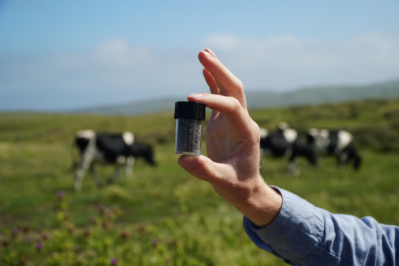GUEST ARTICLE
Beef boycotts aren’t enough to save the Amazon rainforest

Between January and June this year, nearly 4,000 square kilometres of land were cleared in the Brazilian Amazon rainforest. It was the highest level of clearance in six years. Another body blow to one of our world’s most critical biospheres.
As much as 17 per cent of the Amazon forest has already been lost to felling trees for their wood, to clear space for crops – and for cattle farming to feed the world’s appetite for beef.
Beef produced on illegally-cleared rainforest land is a key reason why the Amazon may soon reach a ‘tipping point’ where its trees die off en masse. Trees that are vital for carbon absorption, for supporting biodiversity, and for future economic growth. Trees that our entire world depends on.
Some argue that boycotts are the best way to call a halt to the destruction. Campaigns have urged many consumers to stop eating rainforest with their burgers. Several major European supermarket chains have taken steps to stop selling beef linked to Brazilian Amazon deforestation.
But however positive these actions are, they’re not enough. We need businesses to go further.
If we’re to save the Amazon rainforest, it’s not enough simply to boycott problematic commodities like beef.
Pulling out of markets or boycotting products may well remove export demand. Yet it doesn’t dent the domestic market, which on average accounts for around 70% of product demand.
We need to enable beef to be sourced through sustainable supply chains domestically as well as internationally. A more cooperative approach is essential to achieve this – working with local and national governments, smallholders, meatpackers, suppliers and NGOs – to transform the entire landscape of production into one that’s ‘forest positive’.
For example, let’s look at meatpacking.
Meatpacking is one of the crucial aspects of the supply chain landscape we’re focussing on via The Consumer Goods Forum’s Forest Positive Coalition, which brings together consumer goods companies with a collective market value of more than US$2 trillion.
For us, ‘forest positive’ means deforestation and conversion-free commodity supply chains that maintain forest health, and all the benefits that flow from forests, to people, communities and the world.
We’re striving to leverage collective action and accelerate ongoing efforts to transform many different supply chains, including palm oil, soy, paper, pulp and fibre-based packaging. And, coming back to the subject at hand, beef.
Despite some progress, traceability remains an unresolved issue along the beef supply chain. Before beef reaches the retailers and end consumers, there’s production. There’s transport. And there are processors, or in other words, meatpackers.
In Brazil, an animal can have different owners throughout its lifetime, traveling from one farm to another, generating many indirect suppliers before the last, direct supplier to a meatpacker. These direct suppliers can only provide environmental and social information about the last farm where an animal was before reaching the abattoir.
To ensure meatpackers can adopt sourcing practices that don’t deplete rainforests, we need to go further. To find out how, our Beef Working Group has been collaborating with stakeholders, including local and international NGOs, and large and medium-sized meatpackers in Brazil.
The results are set out in our new Beef Roadmap – and despite the complexity of the problem we’re tackling, the overall approach is simple. It’s about complementing, supporting and increasing the use of best practices that already exist in Brazil, thanks to the efforts of progressive local cattle farmers, meatpackers and geomonitoring companies.
Collaboration is key
When you collaborate, you find many solutions already exist.
While many businesses and governments think tackling deforestation is all about new technologies or approaches, there are already incredible organisations working on the ground to tackle these issues.
By working with and investing in these organisations, faster and stronger progress can be made. This is where multinational consumer goods companies – yours included, perhaps –have the opportunity to make a difference that goes beyond focussing on individual supply chains.
Be it a company cleaning up their supply chain, or a supermarket or consumer boycotting Brazilian beef, I’m not knocking the importance of each and every action against deforestation.
But as the Amazon rainforest continues to shrink, and cattle from illegally cleared land continue to flood supply chains, we need to work together with all stakeholders to effect change across the entire landscape – at the level our world urgently needs.




























